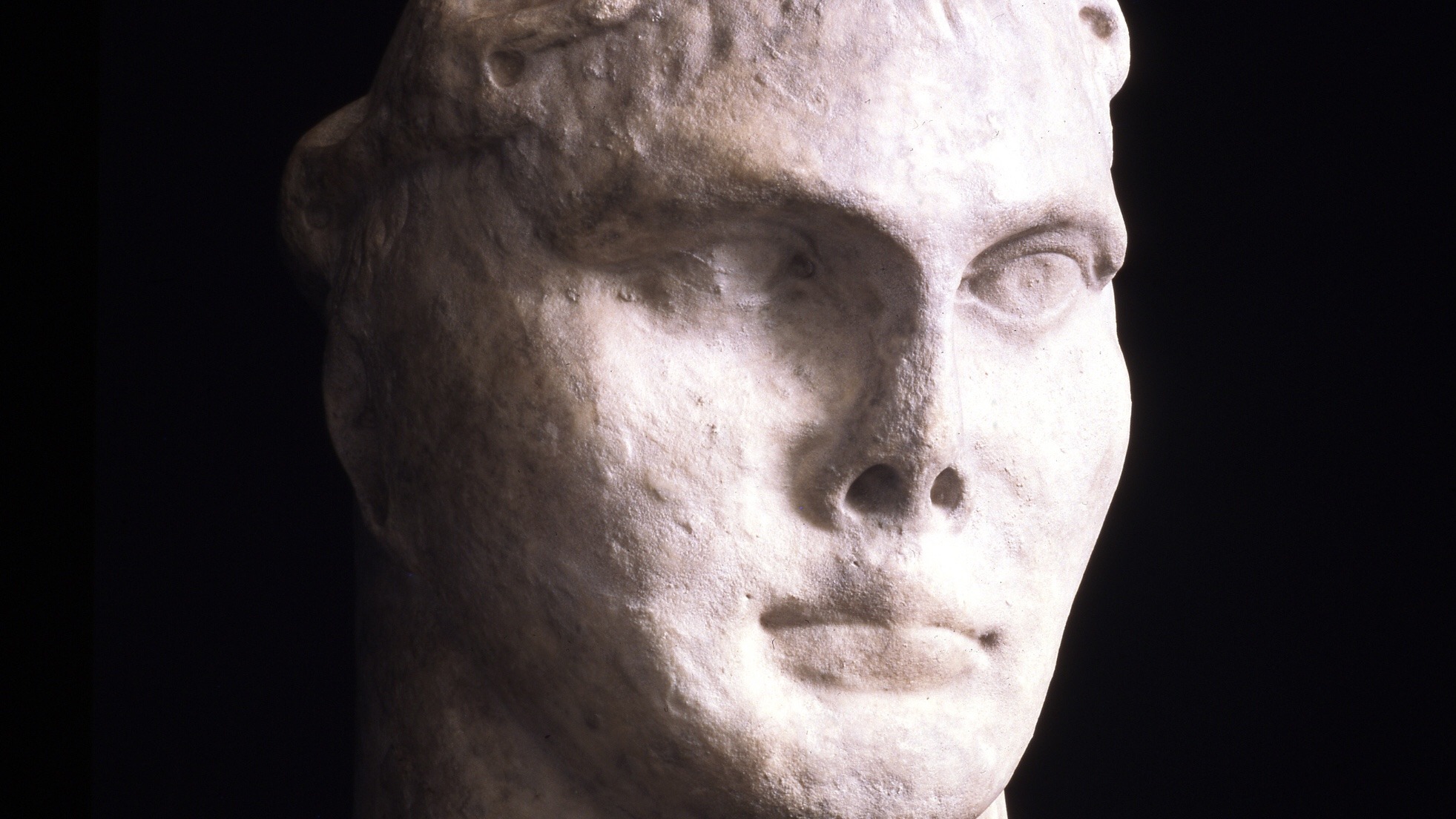
his myth is peculiarly intractable despite the fact that it is also peculiarly easy to refute. The claim is an anachronism, like saying Bill Gates invented the telephone when you can find telephones existing well before Gates was born. If we can find an instance of the Church referring to itself as “the Catholic Church” before Constantine lived, we can disprove the claim.
And so we do. To mention just one place, we find it in Ignatius of Antioch. In his Letter to the Smyrnaeans, he writes: “Wherever the bishop shall appear, there let the multitude [of the people] also be; even as, wherever Jesus Christ is, there is the Catholic Church.”
This letter was written around the year 110 A.D., and Ignatius died some time in the 130s, perhaps as late as the 140s. But Constantine would not be born until February 27, 272 A.D.
The second thing we can show is that the distinctive doctrines of the Catholic Church were taught before Constantine lived. So, for example, in the same Letter to the Smyrnaeans, St. Ignatius affirms that the Eucharist is indeed the body and blood of Jesus Christ:
“Take note of those who hold heterodox opinions on the grace of Jesus Christ which has come to us, and see how contrary their opinions are to the mind of God … They abstain from the Eucharist and from prayer because they do not confess that the Eucharist is the flesh of our Savior Jesus Christ.”
Already in 110 A.D.—a full two centuries before Constantine is supposed to have invented Catholicism—St. Ignatius refers to “the Catholic Church” and teaches that the Eucharist is the body and blood of Christ.
And here is a second example. St. Irenaeus, writing around 190 A.D.—eighty-two years before the birth of Constantine—teaches baptismal regeneration:
“For as we are lepers in sin, we are made clean, by means of the sacred water and the invocation of the Lord, from our old transgressions, being spiritually regenerated as newborn babes, even as the Lord has declared.”
And did you notice that St. Ignatius, in using the term “Catholic Church,” said that what distinguishes it is the headship of a bishop over the “whole Church”? There is no such thing in his thinking as local, independent bodies. He writes this more than 150 years before Constantine drew his first breath.
•••
So how does Constantine get miscredited, as it were, with founding the Catholic Church? Well, what happened is that in the year 313, Constantine issued the Edict of Milan. And what the Edict of Milan did was to stop the suppression of a church that already existed and had been persecuted for some time. It did not create some new Church with Constantine as the first pope. Naturally we will find, after 313, a sudden outpouring of Catholic growth and activity. But this is because persecution has been ended, not because a new Church has been founded and made the official church. In fact, the Edict of Milan did not make Catholicism official at all; it merely made it legal.
And speaking of the related myth that Constantine was the first pope. In the 250s, still twenty years before the emperor was born, there was a huge dispute over who the true pope was. Did you know that? It all happened in the context of persecutions led by the Roman emperor Decius. Pope Fabian was martyred, and for a while no new pope could be elected. Many Catholics renounced their faith.
Then, after the persecutions ended, there arose a dispute about what to do with those who wanted to return to the Church. The new pope, Cornelius, believed penance was enough. But a guy named Novatian argued that they would need to be rebaptized; and in the course of the disagreement, Novatian set himself up as a rival pope. A council had to be called in order to sort it all out; and St. Cyprian of Carthage got a book out of it—On the Unity of the Church—in which he argued that the statements of the bishop of Rome were binding upon the whole Church.
Twenty years before the first pope, Constantine, was born.
Discover more from To Give a Defense
Subscribe to get the latest posts sent to your email.